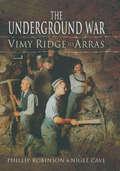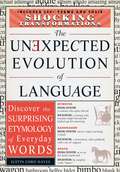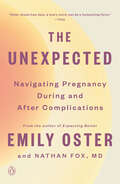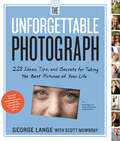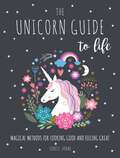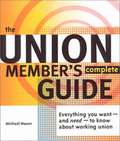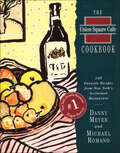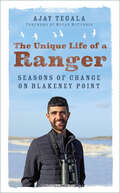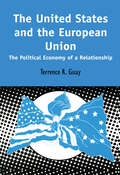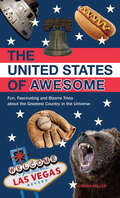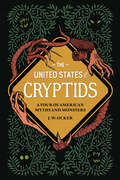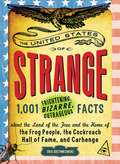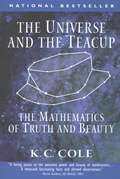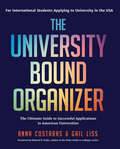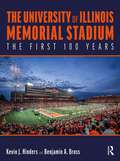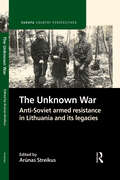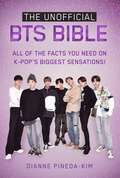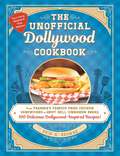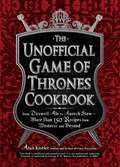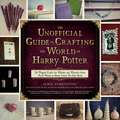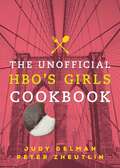- Table View
- List View
The Underground War: Vimy Ridge to Arras
by Nigel Cave Philip J. RobinsonThis is the first part of a planned four-volume series focusing on a hitherto largely neglected aspect of the Great War on the Western Front - the war underground. The subject has fascinated visitors to the battlefields from the very beginning of battlefield pilgrimages in the years immediately after the Armistice, and locations such as Hill 60 and the Grange Subway at Vimy have always been popular stops on such tours. Three other volumes will follow, covering the Somme, Ypres and French Flanders. Each book in the series has a short description of the formation and development of Tunnelling Companies in the BEF and a glossary of technical terms.This volume looks mainly at the central Artois, the environs of the whole line of the Vimy Ridge to the River Scarpe and Arras. It does not aim to be a complete treatment of the intensive mining operations along this front. It concentrates on mining, in the area of Vimy Ridge, in Arras itself and at the use of ancient underground quarries, taking Roeux as a good example. There are extensive descriptions of mining on and around Vimy Ridge, including photography and explanations of systems that have been accessed recently but are closed to the public, such as the Goodman Subway. The narrative draws on French and German archival material and personal descriptions. The text is illustrated with numerous diagrams and maps, in particular from the British and German records, and there is an exhaustive guide to the Grange Subway. Other sites open to the public, in particular the Wellington Cave, are also explained and put into context."BBC History - Archaeologists are beginning the most detailed ever study of a Western Front battlefield, an untouched site where 28 British tunnellers lie entombed after dying during brutal underground warfare. For WWI historians, it's the "holy grail"."
The Unexpected Evolution of Language
by Justin Cord HayesThis book isawesomeawful! Did you know that "awful" first originated as a compliment? How about the fact that it was perfectly fine for someone to defecate in their living room? Or that at one time a bully was actually a sweetheart? You may think that these things sound outlandish, but hundreds of years ago, the words "awful," "defecate," and "bully" meant something entirely different than what we know today. The Unexpected Evolution of Languagereveals the origins of 208 everyday terms and the interesting stories behind their shift in meaning. Arranged in alphabetical order, you will enjoy uncovering the backstories to terms like: Awful- worthy of respect or fear; inspiring awe Bimbo- slang for a stupid, inconsequential man Defecate- to purify; cleanse Invest- to clothe; to dress Nice- foolish; stupid Relay- hunting term meaning fresh pack of hounds From "aftermath" and "sophisticated" to "empty" and "prestige," you will aboslutely love seeing just what kind of damage time has done to the English language.
The Unexpected Evolution of Language
by Justin Cord HayesThis book is awesome awful!Did you know that "awful" first originated as a compliment? How about the fact that it was perfectly fine for someone to defecate in their living room? Or that at one time a bully was actually a sweetheart?You may think that these things sound outlandish, but hundreds of years ago, the words "awful," "defecate," and "bully" meant something entirely different than what we know today. The Unexpected Evolution of Language reveals the origins of 208 everyday terms and the interesting stories behind their shift in meaning.Arranged in alphabetical order, you will enjoy uncovering the backstories to terms like:Awful - worthy of respect or fear; inspiring aweBimbo - slang for a stupid, inconsequential manDefecate - to purify; cleanseInvest - to clothe; to dressNice - foolish; stupidRelay - hunting term meaning fresh pack of houndsFrom "aftermath" and "sophisticated" to "empty" and "prestige," you will aboslutely love seeing just what kind of damage time has done to the English language.
The Unexpected Evolution of Language: Discover the Surprising Etymology of Everyday Words
by Justin Cord HayesThis book is awesome awful!Did you know that "awful" first originated as a compliment? How about the fact that it was perfectly fine for someone to defecate in their living room? Or that at one time a bully was actually a sweetheart?You may think that these things sound outlandish, but hundreds of years ago, the words "awful," "defecate," and "bully" meant something entirely different than what we know today. The Unexpected Evolution of Language reveals the origins of 208 everyday terms and the interesting stories behind their shift in meaning.Arranged in alphabetical order, you will enjoy uncovering the backstories to terms like:Awful - worthy of respect or fear; inspiring aweBimbo - slang for a stupid, inconsequential manDefecate - to purify; cleanseInvest - to clothe; to dressNice - foolish; stupidRelay - hunting term meaning fresh pack of houndsFrom "aftermath" and "sophisticated" to "empty" and "prestige," you will aboslutely love seeing just what kind of damage time has done to the English language.
The Unexpected: Navigating Pregnancy During and After Complications (The ParentData Series #4)
by Emily Oster Nathan FoxFrom the New York Times bestselling author of Expecting Better, a guide to navigating a second pregnancy when the first did not go as planned—with Dr. Nathan Fox, maternal fetal medicine specialistIn Expecting Better, Emily Oster revolutionized the pregnancy landscape with her data-driven approach. In the years since, she kept hearing questions from readers on how to approach a second pregnancy when the first has not gone as planned.While The Unexpected is a book that Oster hopes no one needs, the reality is that 50 percent of pregnancies include complications, a fact we don&’t talk about. Preeclampsia, miscarriage, hyperemesis gravidarum, preterm birth, postpartum depression: these are lonely experiences, and that isolation makes treatment harder to access—and crucial research and policy change less likely to happen.The Unexpected lays out the data on recurrence and treatments shown to lower or mitigate risk for these conditions in subsequent pregnancies. It also provides readers road maps to facilitate productive conversations with their providers, with insights from lauded maternal fetal medicine specialist Dr. Nathan Fox.By bridging the knowledge gap and making space for difficult conversations, The Unexpected promises to make the hardest parts of pregnancy a little bit less so.
The Unforgettable Photograph: How to Take Great Pictures of the People and Things You Love
by George Lange Scott MowbrayRenowned photographer George Lange’s work is guided by one simple truth: An unforgettable photograph is not about what the subject looks like, but what it feels like. In this entirely new kind of photography guide, written by Mr. Lange and Scott Mowbray, magazine editor and longtime amateur photographer, the rest of us will learn how to take photographs that don’t just document life but celebrate it.No fancy equipment required. Just hundreds of simple, inspiring ideas and lessons—each one illustrated with a photograph—organized around the six essential principles of seeing like a photographer. (Here’s one: Shoot the Moment, Not the Subject.)Here’s why to shoot in natural light—always. The fun of putting babies in surprising places. How to get intimate with food. Using a dramatic sky as your backdrop. The benefit of learning to know the light in every room of your house. Shooting hands or feet instead of faces. How to move past the “I was here” postcard effect. How to catch the in-between moments. Because in the end, it’s about living the moment, shooting the moment—and being in the moment forever.
The Unicorn Guide to Life: Magical Methods for Looking Good and Feeling Great
by Eunice HorneBring some sparkle into your life with this guide to work, rest and play – the unicorn way! Learn to spot the stars and rainbows in everyday life and celebrate the real you – a magical, unique being – with this a-mane-zing book!
The Union Member's Complete Guide: Everything You Want -- And Need -- To Know About Working Union
by Michael MauerAn easy-to-read, thorough explanation of what unions are, how they work, and the rights and responsibilities of membership.
The Union Square Cafe Cookbook: 160 Favorite Recipes from New York's Acclaimed Restaurant
by Danny Meyer Michael RomanoThe award–winning restaurant offers recipes revealing “what goes into the restaurant's mingling of French, Italian and other cuisines. . . . [I]mpressive” (Publishers Weekly).Union Square Cafe serves some of the most imaginative, interesting, and tasty food in America. Now its devoted fans can savor the restaurant's marvelous dishes, trademark hospitality, and warm decor at home.Offered are recipes for 160 of Union Square Cafe's classic dishes, from appetizers, soups, and sandwiches to main courses, vegetables, and desserts. Hot Garlic Potato Chips, Porcini Gnocchi with Prosciutto and Parmigiano Cream, Grilled Marinated Fillet Mignon of Tuna, Herb-Roasted Chicken, Eggplant Mashed Potatoes, and Baked Banana Tart with Caramel and Macadamia Nuts are some of the all-time favorites included in this long-awaited collection. Amateurs and pros alike will find the dishes here as accessible as they are irresistible.Beyond just providing recipes, The Union Square Cafe Cookbook inspires confidence in home cooks by sharing Michael Romano's tips for success. Danny Meyer's wine suggestions, inspired by the restaurant's remarkable cellar, accompany almost every recipe.Folks will still go out of their way to eat at Union Square Cafe, but this cookbook—filled with the restaurant's vitality, warm artwork, and tempting recipes—ensures that its pleasures are as close as your bookshelf.“The mix of Mediterranean cuisines, with occasional Asian overtones, yields pleasant surprises.” —Booklist“I know of no other restaurant in America where I have enjoyed more innovative, satisfying, and delicious meals than at Union Square Cafe and now I have the next best thing to eating there—the recipes!” —Robert M. Parker Jr.
The Unique Life of a Ranger: Seasons of Change on Blakeney Point
by Ajay TegalaFew people have had the privilege of living on an isolated nature reserve of international importance, their every move judged by countless critics. Young ranger Ajay Tegala, embarking on his placement at Blakeney Point aged just nineteen, would have to stand firm in the face of many challenges to protect the wildlife of one of Britain’s prime nature sites.In over 120 years, only a select few rangers have devoted their heart and soul to the wildlife of Norfolk’s Blakeney Point. Watching and learning from his predecessors, Ajay faced head-on the challenges of the elements, predators and an ever-interested public. From the excitement of monitoring the growing grey seal population, to the struggles of trying to safeguard nesting birds from a plethora of threats, in The Unique Life of a Ranger, Ajay shares the many emotions of life on the edge of land and sea with honesty and affection.
The United States and the European Union: The Political Economy of A Relationship (Contemporary European Studies Ser. #Vol. 8)
by Terrence R. GuayFirst Published in 2001. Routledge is an imprint of Taylor & Francis, an informa company.
The United States of Awesome: Fun, Fascinating and Bizarre Trivia about the Greatest Country in the Universe
by Josh MillerAMAZING TRUE FACTSFrom the Mayflower landing on Plymouth Rock to Apollo 11' s touchdown on the moon, America has been nothing but the effing coolest country ever. This book is packed with fun facts, curious trivia and wacky revelations about the land of the free, including:* In the midst of the Civil War, 10,000 Confederate soldiers had a snowball fight-Tar Heels vs. Georgians.* Washington's four dogs were named Drunkard, Taster, Tipler and Tipsy.* Unlike melodramatic Hollywood versions, the Gunfight at the O.K. Corral lasted just 30 seconds.* The incredibly unlucky son of Abe Lincoln witnessed the assassination deaths of three presidents.* The U.S. refused to pay a $400 littering fine for dropping the space station on Australia.* Ford pardoned not only Nixon but also Robert E. Lee 105 years after Lee's death.* There is no evidence that Betsy Ross designed the American flag.
The United States of Cryptids: A Tour of American Myths and Monsters
by J. W. OckerMeet the monsters in our midst, from bigfoot to Mothman and beyond!Welcome to the United States of Cryptids, where mysterious monsters lurk in the dark forests, deep lakes, and sticky swamps of all fifty states. From the infamous Jersey Devil to the obscure Snallygaster, travel writer and chronicler of the strange J. W. Ocker uncovers the bizarre stories of these creatures and investigates the ways in which communities embrace and celebrate their local cryptids. Readers will learn about: • Batsquatch of Washington, a winged bigfoot that is said to have emerged from the eruption of Mount Saint Helens• Nain Rouge of Michigan, a fierce red goblin that has been spotted before every major city disaster in Detroit• Flatwoods Monster of West Virginia, a robotic extraterrestrial that crash-landed in rural Appalachia• Lizard Man of South Carolina, a reptilian mutant that attacked a teenager in the summer of 1988• Glocester Ghoul of Rhode Island, a fire-breathing dragon that guards a hoard of pirate treasure• And many more! Whether you believe in bigfoot or not, this fully illustrated compendium is a fun, frightening, fascinating tour through American folklore and history, exploring the stories we tell about monsters and what those stories say about us.
The United States of Strange
by Eric GrzymkowskiLife, Liberty, and the Pursuit of All Things Weird Sure, you probably know that George Washington was our first president and that Christopher Columbus accidentally discovered America in 1492, but did you know that there are more plastic flamingos in the United States than there are real ones and that Disneyland employees were not permitted to wear their own underwear while dressing in character until 2001? Behind the portrait of America that history classes, news reports, and boring documentaries have painted lies a strange and perplexing country that you couldn't imagine even in your wildest dreams. Featuring 1,001 shocking facts, this book reveals all the secrets and weirdness that you never knew about the United States. From the thirty-two(!) bathrooms in the White House to the fact that a single U. S. 'made hamburger may contain meat from 100 different cows, these wacky tidbits will guarantee that you'll never look at this nation the same way again!
The United States of Strange
by Eric GrzymkowskiLife, Liberty, and the Pursuit of All Things Weird Sure, you probably know that George Washington was our first president and that Christopher Columbus accidentally discovered America in 1492, but did you know that there are more plastic flamingos in the United States than there are real ones and that Disneyland employees were not permitted to wear their own underwear while dressing in character until 2001? Behind the portrait of America that history classes, news reports, and boring documentaries have painted lies a strange and perplexing country that you couldn't imagine even in your wildest dreams. Featuring 1,001 shocking facts, this book reveals all the secrets and weirdness that you never knew about the United States. From the thirty-two(!) bathrooms in the White House to the fact that a single U.S.-made hamburger may contain meat from 100 different cows, these wacky tidbits will guarantee that you'll never look at this nation the same way again!
The United States of Strange: 1,001 Frightening, Bizarre, Outrageous Facts About the Land of the Free and the Home of the Frog People, the Cockroach Hall of Fame, and Carhenge
by Eric GrzymkowskiLife, Liberty, and the Pursuit of All Things WeirdSure, you probably know that George Washington was our first president and that Christopher Columbus accidentally discovered America in 1492, but did you know that there are more plastic flamingos in the United States than there are real ones and that Disneyland employees were not permitted to wear their own underwear while dressing in character until 2001?Behind the portrait of America that history classes, news reports, and boring documentaries have painted lies a strange and perplexing country that you couldn't imagine even in your wildest dreams. Featuring 1,001 shocking facts, this book reveals all the secrets and weirdness that you never knew about the United States. From the thirty-two(!) bathrooms in the White House to the fact that a single U.S.–made hamburger may contain meat from 100 different cows, these wacky tidbits will guarantee that you'll never look at this nation the same way again!
The Universe And The Teacup: The Mathematics of Truth and Beauty
by K. C. ColeFilled with “a thousand fascinating facts and shrewd observations (Martin Gardner, Los Angeles Times), this “beguiling and lucid book” (San Francisco Chronicle) demonstrates how the truth and beauty of everything, from relativity to rainbows, is all in the numbers. Line drawings.
The University Bound Organizer: The Ultimate Guide to Successful Applications to American Universities
by Anna Costaras Gail LissFor international students: the only book you’ll ever need to guide you through the US college and university admissions process.University admissions in the United States is tougher than ever. Nearly three million students are expected to enroll as first-time freshmen in colleges and universities in the United States this school year. How can you prepare, get organized, and stay focused throughout the search and admission process?Applying to university can be intimidating and overwhelming for both teens and parents. The process is a maze of standardized tests, school research, university fairs, applications, interviews, CVs, essays, and deadlines. This university planner will guide you easily through each stage and includes tips to help you submit your best application.The University Bound Organizer helps students:Understand what US admission officers are looking for in an applicantPrevent common mistakes students make on their applicationsBuild a personal profilePlan an individualized testing scheduleResearch universities to identify schools that are a good fitDevelop a balanced list of schoolsSecure letters of recommendationComplete and submit applications accurately and on timeDevelop their university application essayApply for financial aid and scholarshipsAce interviewsSort and manage application resultsMake a final decision
The University of Illinois Memorial Stadium: The First 100 Years
by Kevin Hinders Benjamin BrossThis book offers a rigorous but graphically compelling narrative historic analysis of one of the most important civic buildings not only of the University of Illinois Urbana-Champaign, or the State of Illinois, but arguably of the United States, Memorial Stadium.Like all spatial products, the design and construction of the University of Illinois Memorial Stadium embodies the social, political, economic, aspiration, and aesthetic values of its time. This book will engage in critical analysis including documenting the civic discourse that led to the Stadium and thereafter explore the iterative nature of the Stadium in shaping civic discourse. In this vein, central topics include its role in embodying the state’s economic growth; the changing nature of the sociocultural tendencies and its impact on campus life and the University’s community; the Stadium’s effects on UIUC sports and the campus’ built environment; the rise of College sports as big business; and the impact on mass culture across the State and the country, like the use of stadiums as concert venues and place of public discourse. More than a simple study of the building’s conceptualization, design, and construction, this book reveals why Illinois’ Memorial Stadium is an iconic part of the American Midwest’s built landscape and in many ways part of the American mythic landscape.This will be interesting reading for all those familiar with the building, as well as all students and scholars of sports architecture.
The Unknown War: Anti-Soviet armed resistance in Lithuania and its legacies (Europa Country Perspectives)
by Arūnas StreikusThe armed anti-Soviet resistance movement which arose in the second half of 1944 in Lithuania, as Soviet forces began to reoccupy the Baltic countries and Galicia, sparking a nearly decade-long fierce military conflict, has yet to become established in the common narrative of contemporary European history. However, controversy regarding the nature of this `war after the war' and its legacies constitutes one of the core elements in the contemporary information warfare waged by Russia against its neighbouring countries. The origins of various distortions surrounding the story of the partisan war in the western borderlands of the Soviet Union can even be traced to the final stages of that war, when Soviet propaganda sought to discredit the campaign as a battle waged by criminal elements. In this example of a historical event charged with controversial memories and geopolitical connotations, a thorough academic approach is extraordinarily instrumental. Responding to the growing need for historical research capable of providing international readers with the latest findings in the thematic field under question, six scholars from Vilnius University address the diverse aspects of this phenomenon as well as its role in the culture and politics of memory. Toward this end, this analysis – among the most comprehensive explorations of this history to date – is being released in both Lithuanian and English.
The Unofficial BTS Bible: All of the Facts You Need on K-Pop's Biggest Sensations!
by Dianne Pineda-KimJoin BTS&’s ARMY and learn the history of the international K-POP sensation! BTS (aka Bangtan Sonyeondan) has become one of K-POP&’s most well-known singing groups. The seven-member Korean boy band formed in 2013 and has slowly grown to worldwide fame through their music. Despite slow beginnings, the K-POP group now has millions of listeners around the world. They led the Korean Wave of music into the United States in 2017, and as of 2019, they are the only Korean group to top the US Billboard 200, and the first group since the Beatles to have three number-one albums in less than a year. BTS is also known for breaking the mold of K-POP, including social topics such as mental health, individualism, and social commentary in their hip-hop lyrics. TIME Magazine named the Korean Pop group as one of the 25 most influential people on the internet and named them as one of TIME's 100 most influential people of 2019. In the BTS Bible, you&’ll learn everything you could want to know about the sensational singing group, including: Individual member profilesBand concept and styleHistory of their six-year rise to fameChart-topping songs and videosInterviews with worldwide fans and music expertsAnd more! Don&’t get left behind in the wake of the BTS success. Read all about the K-POP group that is changing the face of international music in the Unofficial BTS Bible.
The Unofficial Dollywood Cookbook: From Frannie's Famous Fried Chicken Sandwiches to Grist Mill Cinnamon Bread, 100 Delicious Dollywood-Inspired Recipes! (Unofficial Cookbook)
by Erin BrowneBring the fun of Dollywood right to your own kitchen with 100 of the most delicious foods from Dollywood and its surrounding parks.From favorite snacks and main dishes to refreshing drinks and popular desserts, Dollywood has some incredible food. And now, you can recreate all of your favorites—and discover some new favorites—with these 100 recipes in The Unofficial Dollywood Cookbook. You&’ll learn to make: -Frannie&’s Famous Fried Chicken Sandwich from Grandstand Café -Meatloaf Stackers from Granny Ogle&’s Ham &‘n&’ Beans -Fruity Pebbles Funnel Cakes from Crossroads Funnel Cakes -And much more! Perfect for everyone from Dollywood super fans who miss those familiar flavors in between trips to fans who have never visited but still want to experience the amazing food, The Unofficial Dollywood Cookbook has all the recipes you&’ll need to make treats worthy of Dolly Parton herself.
The Unofficial Game of Thrones Cookbook: From Direwolf Ale to Auroch Stew - More Than 150 Recipes from Westeros and Beyond (Unofficial Cookbook)
by Alan KistlerAn Epic Culinary Journey to the Heart of Westeros!Eat like a Lannister. Brew spirits to warm you in the coming winter. Treat guests to exotic sweets and alchemy-inspired cocktails. With this collection of hearty meals inspired by George R. R. Martin's A Song of Ice and Fire series, it's all possible! Every dish finds its roots in the pages that brought Westeros to life, including:Arbor Red Wine-the finest spirit in the Seven KingdomsThe House of Stark's Venison, Apple, Cheddar Plaits-savory meat pies, fit for any Warden of the NorthThe Imp's Wild Strawberry Fool-a dessert light enough to make Tyrion smileWilding Grilled Pork Chops with Stir-Grilled Apples-the meal of choice at Craster's KeepTears of Lys-the concoction of choice for bartenders and assassins alike Feast your imagination on entrees, desserts, snacks, and drinks that will make your fantasies a reality!
The Unofficial Guide to Crafting the World of Harry Potter: 30 Magical Crafts for Witches and Wizards—from Pencil Wands to House Colors Tie-Dye Shirts
by Jamie HarringtonCharming crafts even Muggles can make! You won't need alchemy or a magic wand to make these magical projects inspired by the world of Harry Potter. With a little Hogwarts creativity and the step-by-step guidance of this spellbinding book, you'll be able to transfigurate simple supplies and things around the house into everything from Remembrall Rings to Butterbeer Lip Balm to Nargles for your front lawn. You'll be as busy as Mrs. Weasley knitting her Christmas sweaters as you dive into dozens of Potterific projects. Relive the excitement of Harry's adventures with these genius crafts. Drop some homemade Pgymy Puff Bath Fizzies into the tub and pretend you're Moaning Myrtle. Keep memories of the Quidditch pitch close with your very own Golden Snitch Necklace. Or show off the Sorting Hat's selection with a House Colors Tie-Dye Shirt. Accio, crafting supplies--it's time for some wonderful wizardly fun!
The Unofficial HBO's Girls Cookbook
by Judy Gelman Peter ZheutlinEat and drink your way through New York with Hannah, Marnie, Jessa, and Shoshanna in The Unofficial HBO's Girls Cookbook. This e-book contains nearly two-dozen recipes connected to the HBO hit show Girls: Stop in at Café Grumpy and learn how to make a French press coffee the way Ray and Hannah would Recreate Jessa and Thomas-John's Foundry wedding cake, with buttercream icing made from local NYC rooftop honey Bake up the Salmagundi Club's chocolate chip cookies, like the one Hannah nibbles on after her cringeworthy reading at the prestigious art and literary association Try your hand at authentic pierogies from Christina's Polish Restaurant, a short walk from Hannah's Greenpoint apartment And more—from Brooklyn Pad Thai and Jessa's White Russian to BabyCakes Black-and-White Cookies and Baked Eggs Warwick Style It's the best way to get a taste of Girls' New York without paying for a plane ticket.
